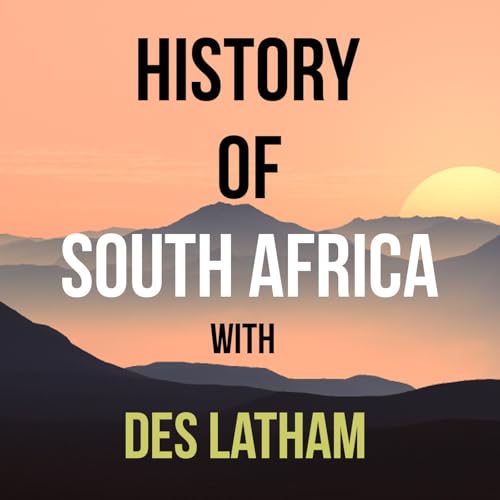
Episode 248 - The Eagle and Four Hawks: The Making of the Anglo-Zulu War of 1879
Failed to add items
Sorry, we are unable to add the item because your shopping cart is already at capacity.
Add to basket failed.
Please try again later
Add to Wish List failed.
Please try again later
Remove from Wish List failed.
Please try again later
Follow podcast failed
Unfollow podcast failed
-
Narrated by:
-
By:
About this listen
Last episode I explained the reasons behind Frere’s fevered decision, egged on as he was by Sir Theophilus Shepstone whose shadow looms large over the history of Natal - and South Africa. Cetshwayo’s diplomacy had relied on the British supporting him against the claims of the Boers to his territory to the north west, already volatile by Mpande’s reign, now it was going to set off one of the most unique wars of the colonial period.
The Boers, Swazi and the Zulu all claimed this zone, rich as it was in reddish deep soil, around Phongola, Ntombe, Mkhondo. Beautiful territory too, it must be said, the deep riverine bush, open plains between, flat topped high mountains. In summer its warm, in winter, waterless, cold. The Zulu relied on seasonally moving their cattle up to these highlands in spring, and down to lower reaches of the hills in autumn.
The Swazi would do the same if they could, and conflict over this land extended way back before the Boers rolled onto the landscape. Because the Disputed Territory was so far north, Natal authorities found it impossible to control any movement here, and as you heard last episode, their Border Commission report ruled that the land belonged to the Zulu and that the Boers had no legal status there.
But Shepstone who was now Administrator of the annexed Transvaal, wanted to curry favor with the Boers and Frere wanted the various colonies and republics of South Africa to form a confederation. Cetshwayo was standing in his way, along with Pedi chief, Sekhukhuni. The last Eastern Cape Frontier War had ended, the amaXhosa were thought of as a defeated nation, while by now the British also regarded the Basotho as benign, so the industrialised military might of the British empire swiveled increasingly towards Zululand.
Cetshwayo was walking a delicate line through the 1870s, frustrated internally by having no glorious campaign to prove he’d bloodied his men in a fantastic war, although defeating the Swazi, sort of, seizing a few mountain fortresses in the Lubombo range. These were on the margins of the Boer and Swazi, it was where Zibhebhu of the Nyawo lived. It was where Dingane had died if you recall — so the capture of the territory was a feather in Cetshwayo’s cap. While Cetshwayo brooded about his northern reaches, it was the murder of two Zulu women I mentioned last episode that was seized upon by the Natal Authorities as a part of the many pretexts to go to war.
Cetshwayo was well aware of the value of firearms and horses. By 1878 there were 20 000 muskets in Zululand, but these were used like a throwing spear, and the stabbing spear was still the preferred method of dispatching your opponent. The stabbing was the principle of washing the spear, soaking it in your enemies blood, thus entering the hallowed portal of manhood. If your regiment did enough washing, then the King would announce that the amabutho had permission to marry and the man could don a hearing. So in a sense, successfully wielding a spear led directly to a sanctioned marriage, and the ability to create sons and daughters. The spear was a symbol of procreation if you like.
Such a system had global resonances.
In the homesteads of Zululand in 1878 as the build up to war took place, the senior commanders and chiefs were aware of the tide of colonialism washing up against their military system. It was in terms of tactics that the coming war that would be the greatest undoing of the Zulu system.
All of these were overtaken by a more modern state or the machinery of empire and the pressure of time. The Spartans lost their supremacy after Leuctra (LOO-ktruh) in 371 BCE, their military culture fading under Macedonian and then Roman rule. The Aztec Empire was obliterated by the Spanish conquest in 1521. The Mongol empire fractured within a century of Genghis Khan’s death, its unity dissolved into regional khanates.
No reviews yet
In the spirit of reconciliation, Audible acknowledges the Traditional Custodians of country throughout Australia and their connections to land, sea and community. We pay our respect to their elders past and present and extend that respect to all Aboriginal and Torres Strait Islander peoples today.



